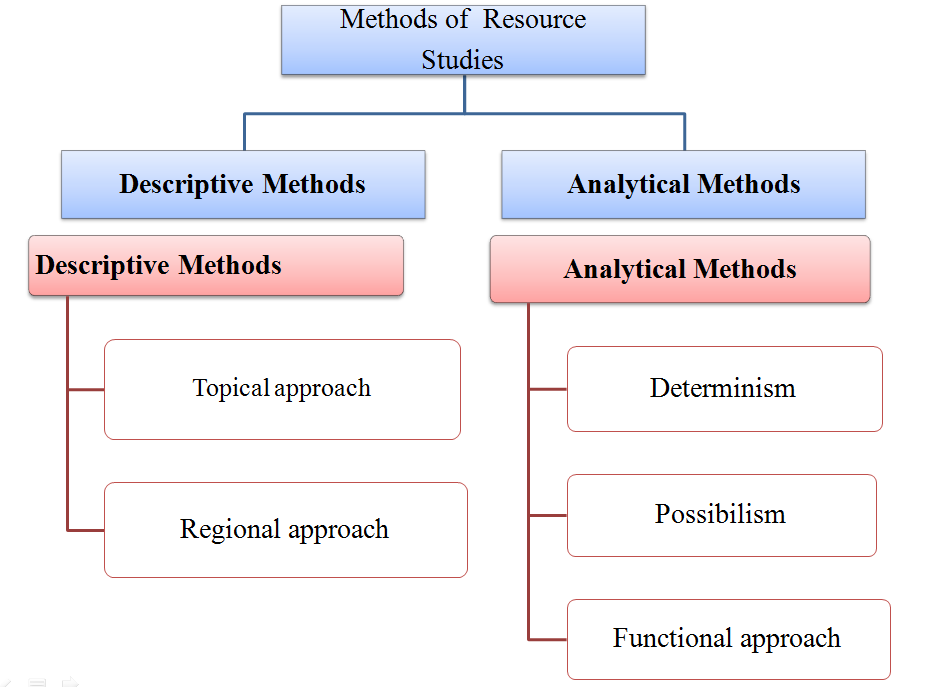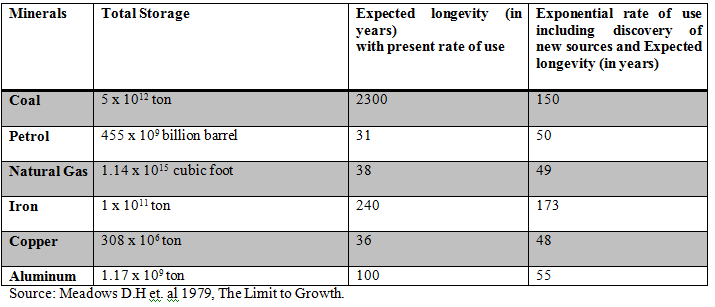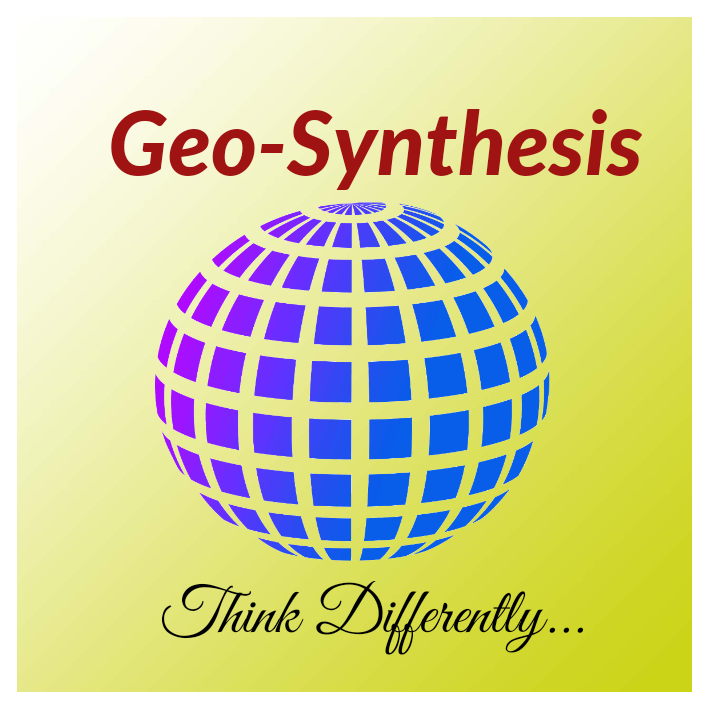By: Dr. Pranab Kr. Das, Assistant Professor, Dept. of Geography, Sree Chaitanya College, Habra

Concept of Economic Resource:
Resources are those objects or subjects that satisfy specific human demands or desires. Resource promotes prosperity, consumption, satisfaction, security, socio-economic stability and happiness in a society or nation. Economic disparity and socio-political instabilities can be felt with the poor generation of resources. The resource is the key to economic growth and development. Proper utilization of resource can mitigate poverty, unemployment and social inequalities. However, resources are not only tangible elements but the functionality which can be more utilized with the enhancement of knowledge and technology. In a broader scene, the resource can be classified as a natural resource, human resource and economic resource.
An economic resource is that goods or service which has specific economic values to the individual consumer or group of consumer. Demand, supply and profit are very much associated with economic resources. This resource is the consumer products, developed through a specific production system and consumed through the market economy.
Characteristics of Economic Resource:
- Economic resources have specific economic value,
- Demand, supply and profit are very much associated with economic resources.
- Actually, this resource is the consumer products, developed through a specific production system and consumed through the market economy.
- An economic resource can be consumed only either the exchange of commodity or expense of money.
Consumption rate of economic resources are depended on socio-economic status and culture.
Factors of Effecting Economic Resources:
The four main driving forces of the economic resource are land, labour, entrepreneurship and capital. They are also called factors of production.
The land is the natural storehouse of various natural resources includes forest, farmland, fishing grounds, mines and other similar natural resources. These natural resources are used as raw materials for finished goods. The land itself can be a resource. The infrastructures over the land can promote the production system with infrastructural development. For instance, highways, farmland, industrial land, port etc. However, the land is a limited resource as the amount is fixed. Some natural resources such as timber, agricultural products, and animals, fishes are renewable and few are reusable such as various metals. The energy minerals are exclusively non-renewable. Nations must carefully use their land resource by creating a mix of natural and industrial uses. Using land for industrial purposes allows nations to improve the production processes for turning natural resources into consumer goods i.e. economic resources.
Labour is nothing but the available human skill which transforms the raw materials (natural resources) into an economic resource as consumer goods. Broadly human labours are classified as organized and unorganized. This factor of production is also used for consumer services. Skill and productivity of labour can also be improved through proper education, training and management.
Entrepreneurship is considered as a factor of production. The entrepreneur takes risk and liabilities of the production system. They have ideas for creating a valuable good or service with transforming natural resources into consumer products. Entrepreneurship also developed infrastructures, production base and allocate fund for the generation of economic resources.
Capital is very much needed for the production of economic resources. Capital is needed to acquire land, purchasing of raw materials, technologies, development of infrastructures and transportation. Capital acts as an essential financial stimulator of an entrepreneur.
Different Methods and Theories of Resource Studies

There are two popular methods of resource studies; Descriptive and Analytical.
- Descriptive Methods: method is further divided into two approaches Topical and Regional.
The topical approach is a topic or theme-based study of resource where the emphasis is given on selective topics such as agriculture, industry, mining, fishing, transport, service sector, population etc. For instance; if the topic is iron ore, the matter of discussion will be the origin of iron ore, its classification, storage, distribution, uses and prospects. A topical approach is a popular approach to resource study.
The regional approach divides the whole earth into some regions. These regions are further divided into a smaller region based on spatial or regional difference. There is the various basis of regionalization such as climate, nature of the soil, river basin, physical factors, etc. For instance; if Chotta Nagpur plateau is a matter of discussion, emphasis will be given on natural resources, agriculture, industry and transportation etc and their role in the economic development of the region.
1. Analytical Methods:
This method emphasizes on different perspectives of man-nature symbiotic relationship and their impact on resource generation. Various issues related to the production of economic resources such as function, utilization, scarcity, conservation, environmental degradation, etc are discussed in this method with statics. The analytical method is based on three theories; Deterministic, Possibilistic and Functional.
Determinism is the philosophical belief that all events are determined completely by previously existing causes. In this theory, it is considered that every activity of human being is regulated and controlled by nature. Means, nature is the ultimate power and human being must surrender to any situation. Alexander Von Humboldt, Karl Richter, Ellen Churchill Semple, etc advocates this theory. For, instance, the commercial fishing grounds are mostly concentrated in temperate zones of northern hemisphere due to favourable climatic conditions.
Possibilism is a philosophical belief that considers human being can overcome environmental limitations with the implication of knowledge and technologies. It also says every crisis brings a new opportunity which could be applied for other crisis too. Paul Vidal De Lablache, Emmanuel De Morton, Carl O Sauer, etc were in favour of this theory. For instance, offshore oil fields were discovered in various part of the Arabian Sea in spite of environmental challenges.
Functional approach theory is considered to be the second paradigm of psychology. This approach was developed by William James in 1890. It believes there must be a reason for every human activity. The perspective of this theory is to analyze the cause and effect of human activities. For instance, the cotton textile industry of India is concentrated in Western India and there are some geographical factors. Functional approach discusses these geographical factors.
Resource Adequacy and Scarcity:
One of the important paradoxes of the economic resource is ‘Adequacy and Scarcity’. The paradox, ‘adequacy and scarcity’ has been developed in two different types of economy. The first one is the capitalistic ideology/economy and the second one is the socialistic economy.
Resource Adequacy and Scarcity:

One of the important paradoxes of the economic resource is ‘Adequacy and Scarcity’. The paradox, ‘adequacy and scarcity’ has been developed in two different types of economy. The first one is the capitalistic ideology/economy and the second one is the socialistic economy.
Adequacy:
According to capitalistic thought, resources are adequate and their maximum use is possible. Capitalists believe that resources are the gift of nature; therefore, they can be used without any restriction. Some natural resources are available across the globe such as air, water and sunlight, known as ubiquitous resources. Ubiquitous resources are common, can be used freely and people think these are infinite. So, misuse of these recourses is maximum. On the other hand, the majority of resources are localized. People who live in resourceful regions or the rich people have a popular misconception about resource adequacy. These people can access the resources very easily and habituated with overuses or misuses. This misconception evolved due to capitalistic production system drive by the possibilistic theory. Capitalistic ideology only considers about demand-supply and profit. To gain profit the capitalistic mode of production system unnecessarily endorses products among people with various marketing strategy. Majority of the people purchase goods, not by needs but an aspiration. This is called consumerism. This ultimately leads to overexploitation of resources for the benefit of a certain group (rich) of people.
Scarcity:
Theoretically, scarcity is that state where more quantity of demand experienced then supply. After the formation of OPEC in1963, the global economy has been changed dramatically. OPEC increased crude oil price 26 times within 10 years. The 1973s crude oil embargo imposed by the Arab Petroleum Countries on western countries was a great lesson for them who used to believe maximum utilization of the resource is possible. The embargo was targeted to those nations supporting Israel during the Yom Kippur War. During this one year embargo, the price of crude oil rose nearly 400%, from US$3 per barrel to nearly $12 globally.
1970s decades was phenomenal in various aspects. The radical or socialistic movement was consolidated various part of the globe including the US, the nodal point of the capitalistic production system. At that time people of the US opposing the Vietnam War (1955-1975) and raising voice for civil rights of the black people. The radical approaches highlighted the negative impact of the capitalistic system in a scientific manner. After the 1970s it was realized that due to the overexploitation of resources, quality of ubiquitous resources are declining and the quantity of the other resources are declining very fast. It was also observed that resources are not unlimited and energy minerals are going to be finished within a few decades.
In 1972, a US research institute, ‘The Club of Rome’ made a projected titled “The Club of Rome’s Projects on the Predicament of Mankind” under the guidance of D.H Meadows. This report is popularly known as ‘The Limits to G
rowth’. The research team used the System Dynamics model developed by the J.W. Forrester for caste the availability of various resources. The report highlights five factors, population explosion, an increase of agriculture, industrial products, rapid use of fund resources and environmental degradation.

After the publication of this report, it was soon realized that resources are not unlimited and unless properly used. It was also noticed that environmental degradation is very much associated with miss management or ubiquitous and flow resources such as air, water, soil, forest, etc. Due to the huge promotion of agriculture, mining, fishing this common resources are degrading a lot and we are facing ecological imbalance too. This situation is known as the’ tragedy of commons’.*
The major findings of the Meadows report are;
- Overpopulation gives excess pressure on economic resources
- Resources are limited.
- Limitation of agricultural land and production cannot be accelerated after a certain limit.
- There is a limited amount of fund resources and due to overuses quality of flow recourses are degrading.
- Scarcity of environmental friendly substitute of fund resources.
- Limited use of recycling opportunities.
The main causes of the scarcity of economic resources are:
- Resources are finite: After the industrial revolution, the uses of various energy minerals, metallic & non-metallic minerals increased at an exponential rate. Not only this, but the common recourses also used randomly. Thus the fund resources are decreasing day by day and flow resources are losing their qualities. For instance, coal of Britain has been finished, there are few Sardine fish available near Japan coast, the Cord and Herring are endangered in Norway and Sweden.
- Over Uses of resources: Unlimited consumption often causes depletion of resources. For, instance, over-farming reduce the fertility of the land. The 20 developed nations of the world consume 50% of the resources of the world. As per U.S Bureau of Mine, Minerals, in 1970 U.S.A used 42% Aluminium, 33% copper, 26% gold, and 26% silver of the global production.
- Wastage of resources: Due to unawareness, lack of knowledge or careless attitude people waste economic resources. This scenario experienced all over the world. Where finished goods or consumer goods are misused in a developed nation, flow resources are being wasted in developing nations. For instance, due to good precipitation, eastern India is blessed with water resources but due to misuses quality of water decreasing rapidly. On the other hand, as per a survey of F.E Trainer in 1985, it was observed that yearly 7 lakh car, 10 crore tire, 20 crore ton paper are thrown as garbage.
iv. Multiple-use of a resource and attendant problem: The resources which are used in multiple forms or stage could be finished rapidly. For instance, petroleum goods, it has several forms and by-products thus it will be finished very soon.
v. Lack of technical knowledge: Underdeveloped nation faces various infrastructural crises including technical knowledge. Old production system, machinery, unskilled labour can cause of recourse wastage and scarcity. For example, at the initial stage, 6-ton iron ore was required for the production of 1-ton steel and it has been reduced to only 2 ton.
vi. Resource Depletion due to environmental pollution: Due lack of conciseness or indifferent attitude environment is being polluted across the globe. Environmental pollution also decreases the quality of flow resources such as fish, crops, non- timber forest goods etc. For example, pollution of Bhagirathi- Hooghly River is responsible for the scarcity of Hilsa fishes.
*What is Tragedy of Common?
The Tragedy of the Commons is an economic theory that describes how people often use natural resources (flow resources) to their own needs without considering the interests of other members of society. It is a serious state where people become only consumer and not interested about production. It results in over consumption, under investment, and ultimately depletion of the resource. As the demand for the resource overwhelms the supply, every individual who consumes an additional unit directly harms others who can no longer enjoy the benefits. Generally, the resource of interest is easily available to all individuals; the tragedy of the commons occurs when individuals neglect the well-being of society in the pursuit of personal gain.
